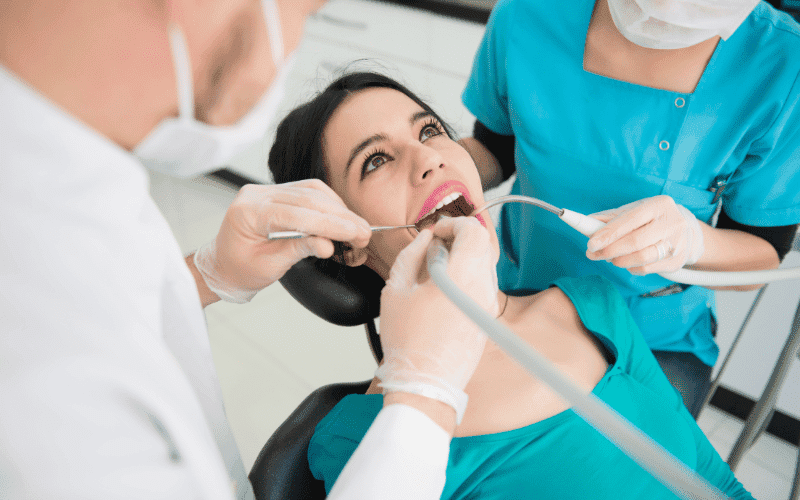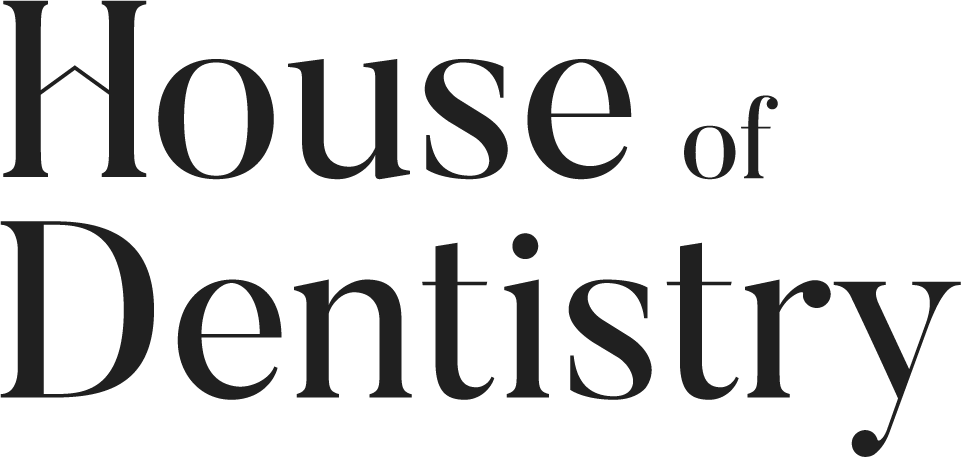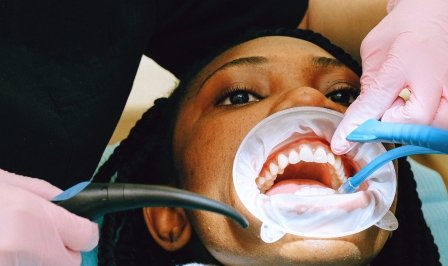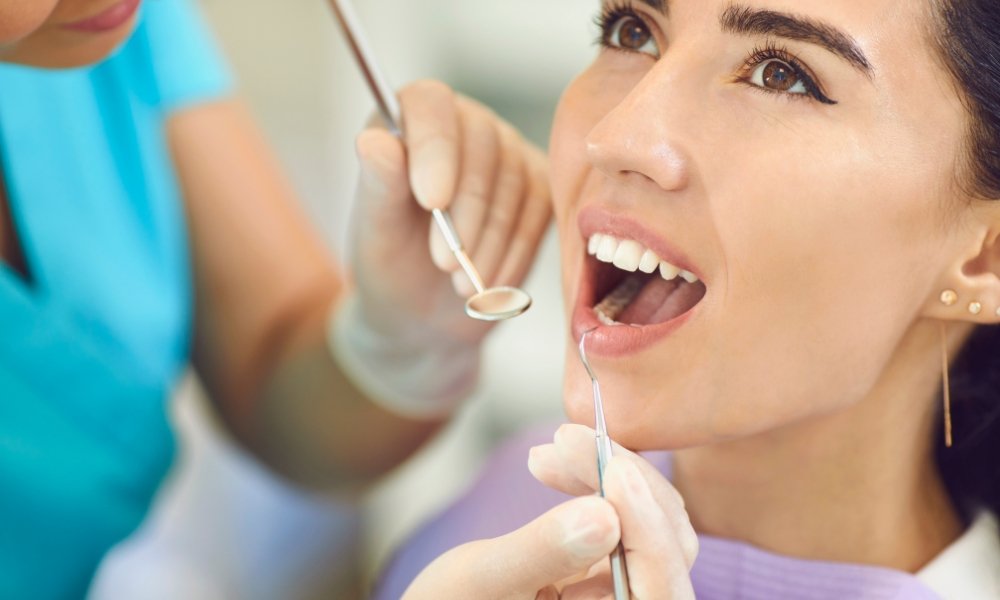

When was the last time you had your teeth professionally cleaned?
If it’s been a while, you might wonder what to expect during your next visit. Whether you’re a regular at the dentist or it’s been a few years, understanding the process can ease any anxiety and help you appreciate the benefits of keeping up with your oral health.
Professional dental cleanings do more than just polish your smile. They play a crucial role in preventing gum disease, cavities, and other issues that could lead to more serious problems. This quick and straightforward appointment offers a deep clean that your daily brushing and flossing can’t match.
Ready to dive in and see what happens during a dental cleaning?
Let’s explore the steps and see why this routine checkup is so vital for your oral health.
Initial Examination: The First Step
Assessment by the Hygienist
- Examination of Teeth and Gums: Your dental cleaning begins with a thorough examination by the dental hygienist. They use a small mirror to inspect your teeth and gums, looking for signs of issues such as cavities or gum disease.
- Spotting Problem Areas: The hygienist will identify any areas that need special attention during the cleaning process. This helps in addressing potential problems early and tailoring the cleaning to your specific needs.
Consultation with the Dentist
- Checking for Concerns: If the hygienist notices any concerns, they might consult with the dentist before continuing. This ensures that any underlying issues are addressed and the cleaning is as effective as possible.
- Opportunities for Questions: Use this time to ask questions about your oral health. Understanding what’s going on in your mouth helps you take better care of it at home.
Removing Plaque and Tartar: The Core of the Cleaning
Plaque Removal
- What is Plaque? Plaque is a soft, sticky film of bacteria that forms on your teeth. Regular brushing helps control it, but it can build up between visits.
- Scaling Process: The hygienist uses a scaler to gently remove plaque from the surface of your teeth and along the gumline. This process ensures that all the bacteria are eliminated, reducing the risk of cavities and gum disease.
Tartar Removal
- Understanding Tartar: Tartar forms when plaque hardens on your teeth. Unlike plaque, tartar is stubborn and requires professional tools to remove it.
- Tools and Techniques: The hygienist uses specialized instruments to break up and remove tartar. You might hear scraping noises, but the procedure is designed to be gentle and effective.
Polishing: The Finishing Touch
Why Polish?
- Smooth Surface: After tartar removal, the hygienist polishes your teeth to smooth the surfaces. This step removes any remaining plaque and gives your teeth a clean, shiny finish.
- Fluoride Application: Polishing often includes applying fluoride, which strengthens your enamel and helps prevent decay.
Comfort and Results
- Minty Freshness: The polishing paste usually has a pleasant flavor, leaving your mouth feeling fresh. It’s a satisfying end to the cleaning process and adds to the overall cleanliness of your teeth.
Professional Advice: Enhancing Your Oral Care Routine
Customized Recommendations
- Personalized Tips: After your cleaning, the hygienist provides advice on improving your oral care routine. They might suggest specific products or techniques based on your needs.
- Follow-Up Care: If there are any areas of concern, the hygienist will discuss them with you and recommend follow-up care if needed.
Importance of Regular Check-Ups
- Frequency of Visits: Regular dental cleanings are crucial for maintaining oral health. Your hygienist will schedule your next visit and remind you of the importance of staying on top of your dental care.
- Ongoing Maintenance: Regular check-ups help prevent issues from becoming serious. They’re an essential part of a proactive approach to dental health.
What to Expect During Your Appointment
Duration and Comfort
- Typical Appointment Length: A standard dental cleaning appointment usually lasts between 30 to 60 minutes. It’s designed to be thorough yet efficient, fitting comfortably into your schedule.
- Comfort Measures: If you feel anxious, let your hygienist know. They can offer comfort measures and explain each step to make the experience as pleasant as possible.
Aftercare and Sensitivity
- Post-Cleaning Sensitivity: It’s common to experience slight sensitivity after a cleaning, especially if you haven’t had one in a while. This sensitivity typically fades within a day or two.
- Care Instructions: Follow any aftercare instructions provided by your hygienist. They might recommend avoiding certain foods or drinks immediately after your appointment.
Maintaining Oral Health at Home
Daily Practices
- Brushing and Flossing: Maintain a routine of brushing twice daily and flossing regularly. This helps keep plaque at bay and complements the professional cleaning you receive.
- Use of Mouthwash: Incorporate mouthwash into your routine to help reduce bacteria and keep your breath fresh.
Regular Check-Ups
- Scheduling Visits: Keep up with regular dental check-ups and cleanings to ensure ongoing oral health. Your dentist can monitor your progress and make adjustments to your care plan as needed.
Enhancing Your Routine
- Tips and Tools: Ask your hygienist for recommendations on the best tools and techniques for your oral care routine. They can provide personalized advice to help you maintain optimal dental health.
Choosing a Dental Professional
- Finding the Right Fit: Look for a reputable dental office where you feel comfortable and well-cared for. If you’re in the Metuchen area, dental cleaning in Metuchen ensures you receive quality care tailored to your needs.
- Professional Expertise: A skilled dental team will make your cleaning experience efficient and effective, setting you up for long-term oral health success.
Professional dental cleaning is essential for maintaining oral health. By removing plaque and tartar, polishing teeth, and providing personalized advice, your dentist helps prevent decay and keep your smile bright. Regular cleanings, combined with good at-home care, set the foundation for a lifetime of healthy teeth. Stay proactive, follow your dentist’s recommendations, and enjoy the benefits of a clean, confident smile.




